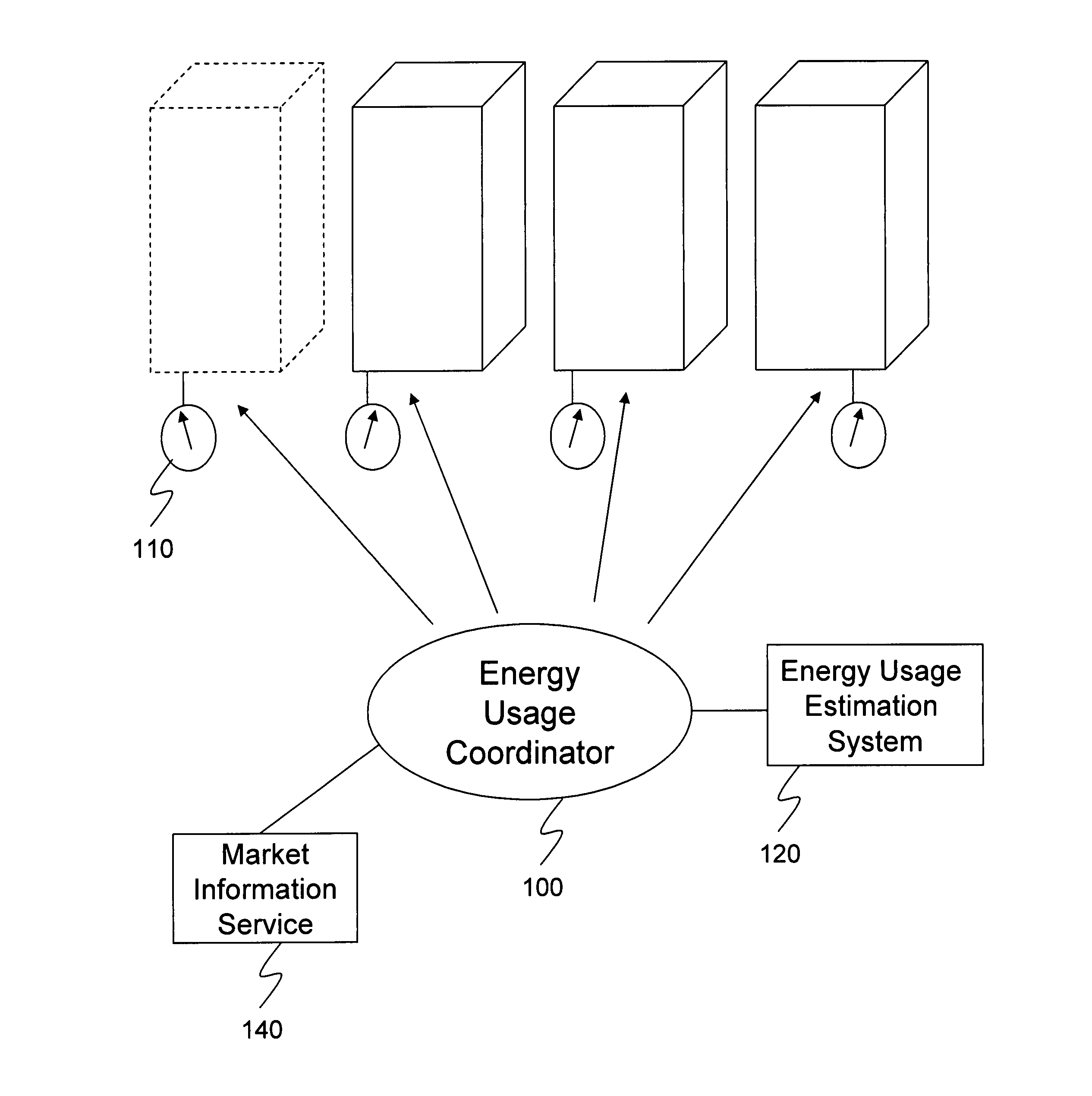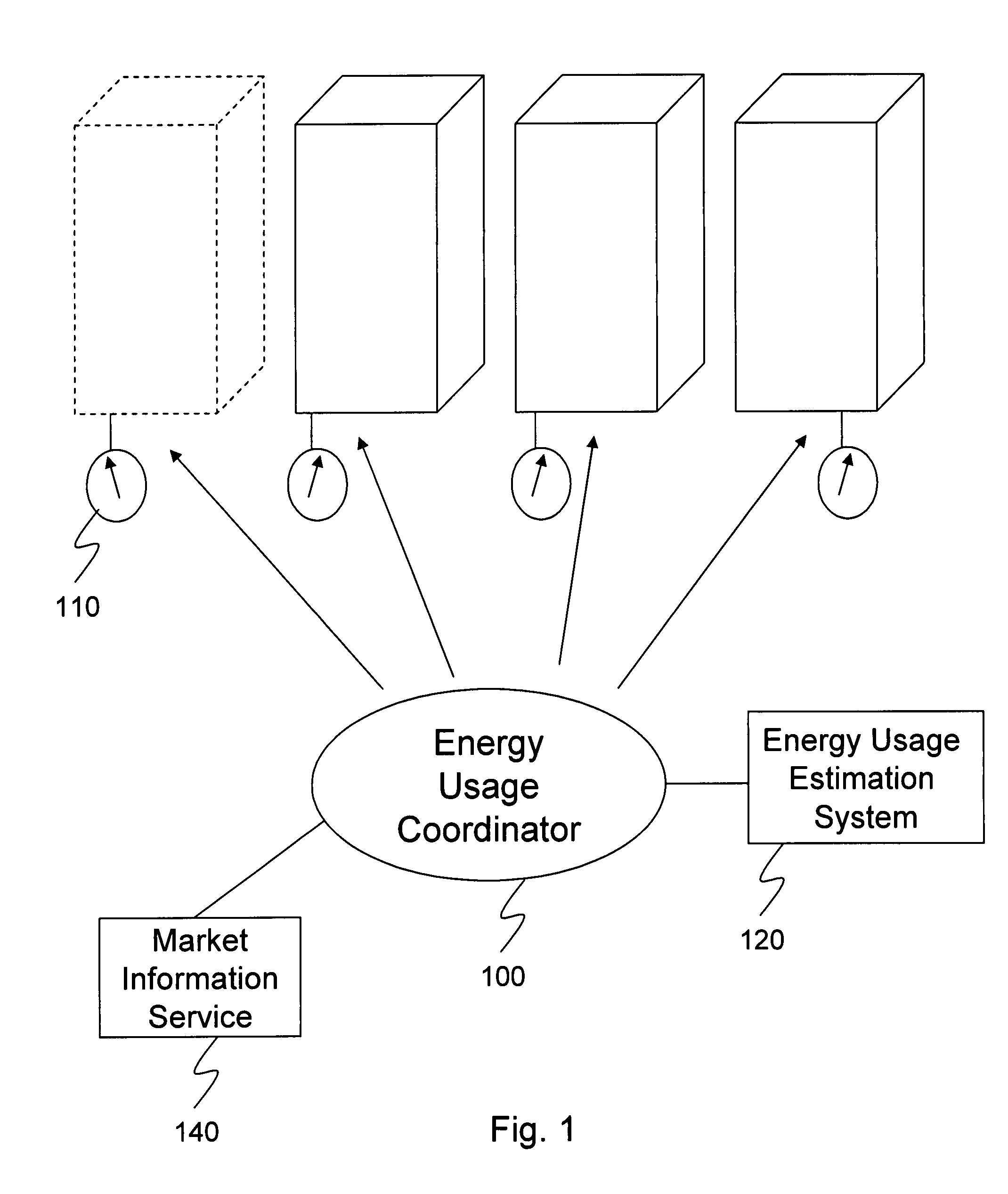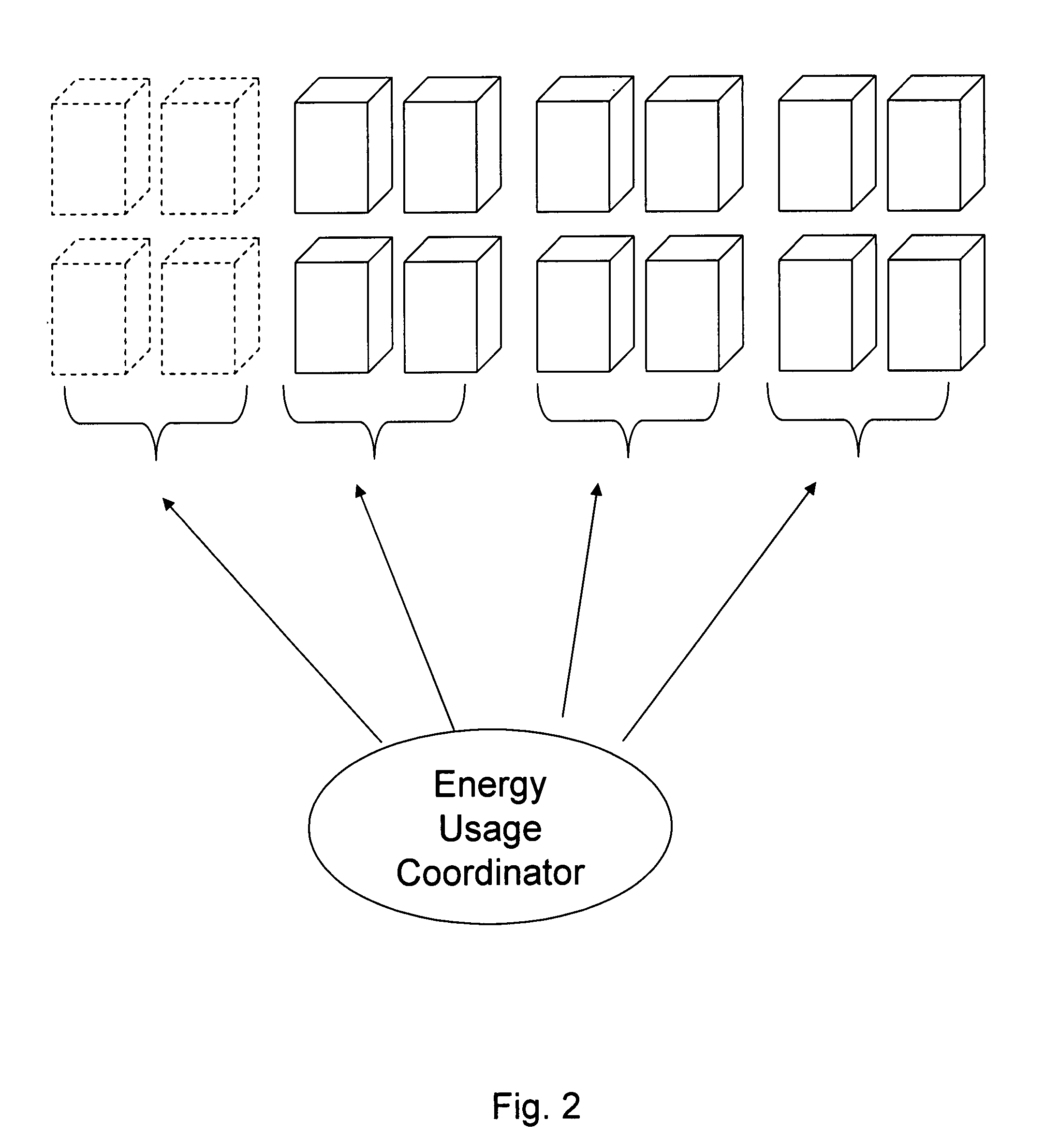Multi-building control for demand response power usage control
a technology of demand response and power usage control, applied in the direction of electric devices, process and machine control, instruments, etc., can solve the problem that each such company cannot operate in a vacuum
- Summary
- Abstract
- Description
- Claims
- Application Information
AI Technical Summary
Benefits of technology
Problems solved by technology
Method used
Image
Examples
Embodiment Construction
[0013]Turning to FIG. 1, an energy usage coordinator 100 is arranged to control the energy usage of individual buildings of a group (or portfolio) of buildings in one or more load zones. These buildings have all contracted with an energy company which controls (directly or indirectly) the energy usage coordinator. By agreeing to lower energy usage when called upon, the owners or managers of the buildings receive a preferential energy rate from the energy company. Such a preferential rate may be in the form of a fixed rate reduction or a variable rate reduction. Fixed rate reductions include, but are not limited to, a fixed reduced rate for the year, a fixed reduced rate for the month(s) that the building(s) reduced energy usage on demand, a fixed reduced rate for the day(s) that the building(s) reduced energy usage on demand, a fixed rate for the hours that the buildings reduced energy usage on demand. For example, if a building would be able to contract for $0.019 / kW hr for its ene...
PUM
 Login to View More
Login to View More Abstract
Description
Claims
Application Information
 Login to View More
Login to View More - R&D
- Intellectual Property
- Life Sciences
- Materials
- Tech Scout
- Unparalleled Data Quality
- Higher Quality Content
- 60% Fewer Hallucinations
Browse by: Latest US Patents, China's latest patents, Technical Efficacy Thesaurus, Application Domain, Technology Topic, Popular Technical Reports.
© 2025 PatSnap. All rights reserved.Legal|Privacy policy|Modern Slavery Act Transparency Statement|Sitemap|About US| Contact US: help@patsnap.com



